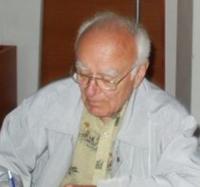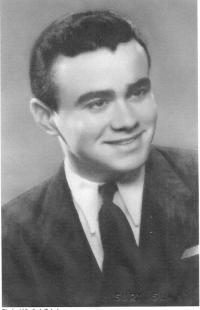Until today I still don’t know why they arrested me. The investigator was giving me questions I wasn’t able to answer

Stáhnout obrázek
Mr. Vladimír Zobal was born on December 17th 1928 in Bardejov town in Slovakia. His family moved to Komarno town in 1938. His father was employed here as an official. After the occupation of the territory by Hungarian army they moved to Malacky town. At the time of establishment of the Slovak State the living conditions for Czechs residing in Slovakia were so unbearable that the parents decided to move to Bohemia. Since 1939 the family lived in Slaný town. Vladimír graduated from the high school and he attended seven terms out of eight of the University, which he wasn‘t unfortunately able to finish because he got arrested after fabricated accusation. Subsequently he was sentenced to six years in prison. He board to serve the sentence in Ležnice town pit. After one year he was transferred to Svatopluk mine, where he began his cooperation with the prison theater. Later on he was transferred again, this time to Vojna camp in Příbram town region. He experienced several escape attempts of his prison mates. Most of the attempts were unsuccessful and cruelly punished. After the death of Stalin (1953) the Central Committee of Communist Party members started to be driven into the camp. After his release, Mr. Zobal wasn‘t able to find himself any job in Slaný. Therefore he left to Ostrava town where it was no problem at all to get a job. He is retired and lives together with his wife in Slaný again. Vladimír Zobal died in 2015.

